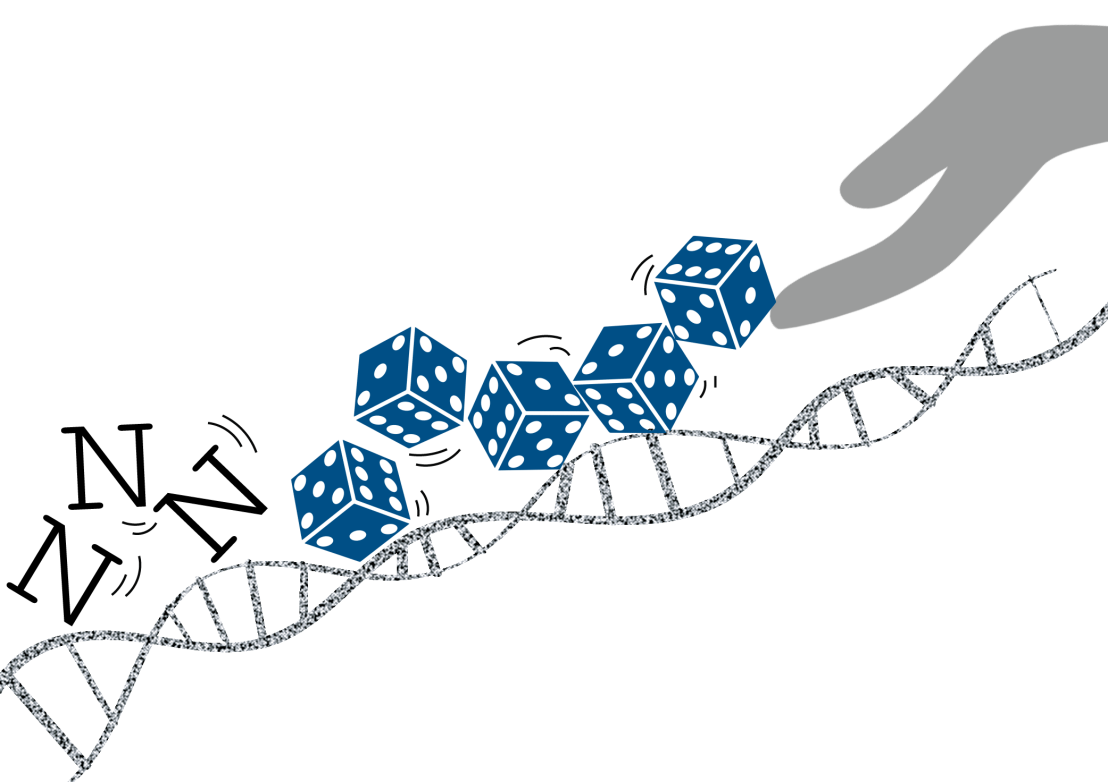DNA synthesis for random number generation published in Nature Communications
Our new work, published in Nature Communications, investigates the stochastic nature of chemical reactions for random number generation. We show that DNA synthesis can be used to create 7 million GB of randomness at a speed of 300 kB/s.

In collaboration with Reinhard Heckel from the Technical University of Munich, we investigated the question whether or not it is possible to use DNA synthesis to generate random numbers. Using existing technology, we wrote (synthesized) and read (sequenced) DNA and found that in in our randomly synthesized DNA strands, the distribution of the four nucleotides A, G, T and C was not evenly distributed. Thus, we had to search for a solution to remove any technological or human bias introduced during synthesis. A simple mathematical algorithm was the solution, as it compressed the original data, stripping it from the observed bias.
Our proposed technology to generate random numbers is still quite laborious and costly, but as the processes of DNA reading and writing become cheaper and faster over time, DNA synthesis for random number generation may eventually have a chance to become a commercially competitive true random number generator.
Have a look at our blog post in the bioengineering community (external page Link) or access the publication directly (external page Link). Our work is also featured in ETH News.